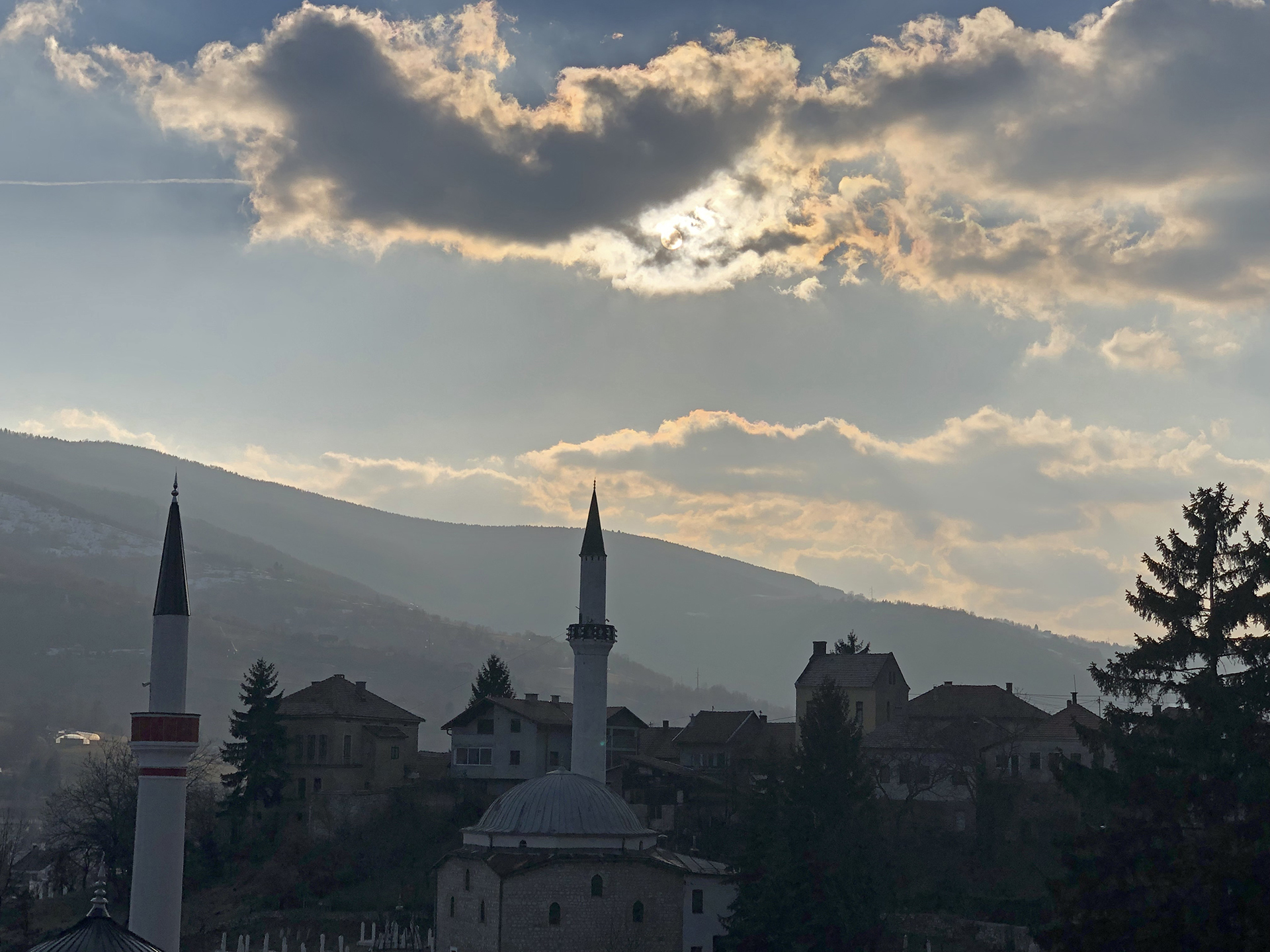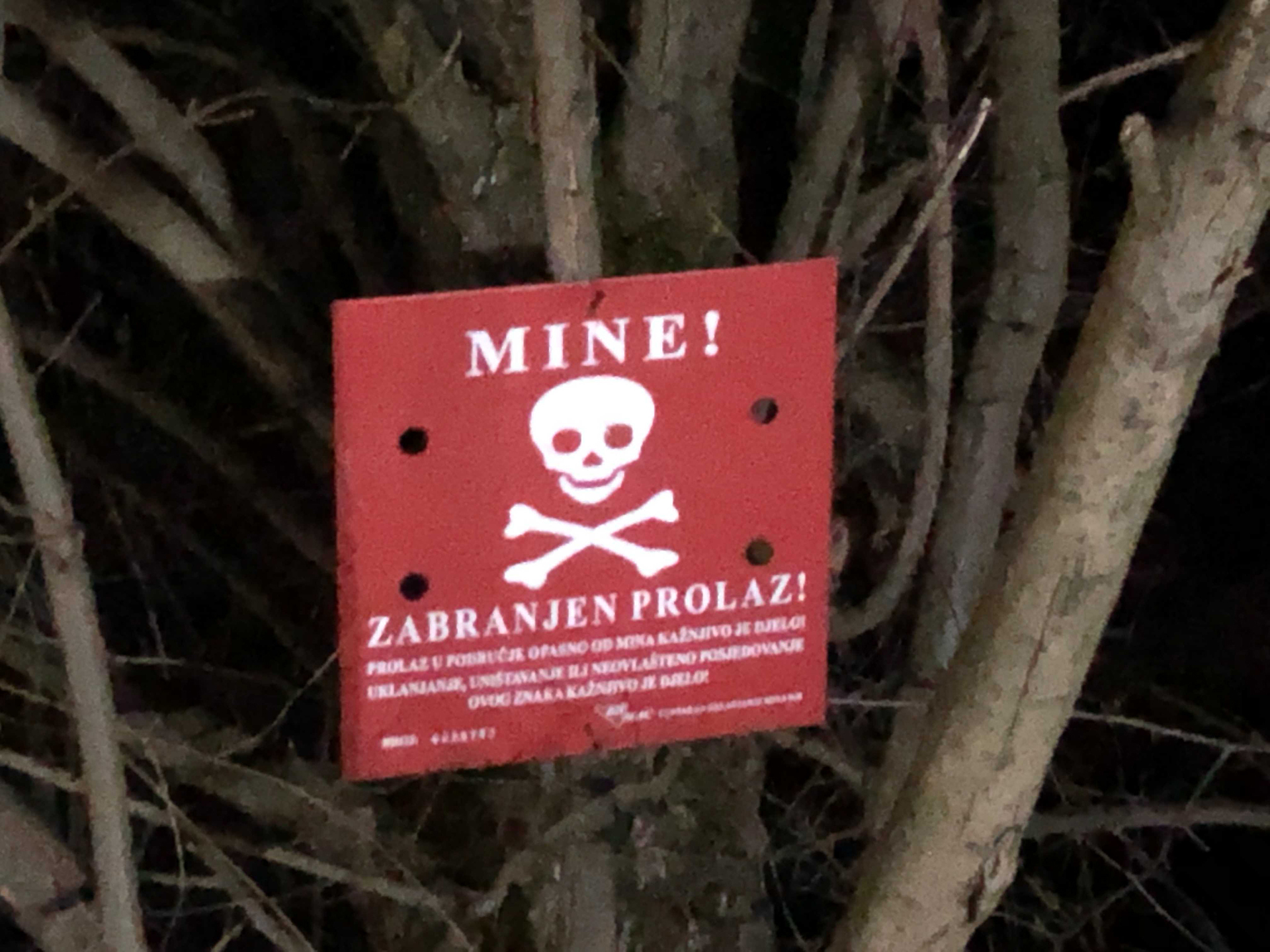
Hope in the Shadow: Societal Challenges in Bosnia and Eastern Saxony
Hope in the Shadow: Societal Challenges in Bosnia and Eastern Saxony
Oberlausitz im Wandel
»Disappointed hope in Bosnia and the turning face of Eastern Saxony - how two countries deal with the challenges of the modern era, the decline of young people, and the search for meaning in a world full of uncertainty. This essay offers an authentic view of societal dilemmas and questions about the future that will resonate with anyone aspiring for better tomorrows.«
My last trip to Bosnia completely rid me of illusions. Even from previous trips, I was somewhat disillusioned. But at that moment, I wasn't being completely honest with myself. It was as if I COULDN'T believe what I saw during my last trip because I PREFERRED to believe what I thought when I was working abroad and helping to rebuild this country after the war for three years.
After that war, there was hope. But what happened to that hope? What happens when hope is literally "buried to death" over the following decades, thanks to dirty political games?
That is Bosnia today: in reality, a truly beautiful country where gangs rule, as corrupt as they are nationalist, and they only cooperate when the international money bag is ready to spit out millions into the country. The rate of emigration of young people is high, birth rates are marginal. It's just a matter of decades before...
Yes, what actually?
It sometimes reminds me of Eastern Saxony, where I live. There are a few people who believe in the positive future of this region. But when you look closely: fewer young people, and more grumpy old men.
Who wants to live here? And above all, why?
Then a "wet cat bites me in the ass": Why do I live here? Because it's beautiful, because it's my home, because I can't do any better? Because I believe in the positive future of the region? Yes, of course: the surroundings are beautiful. But the meaning of things comes from the relationship you have with those things. And the fact is, very few young people want to have a relationship with this region. Home, it seems, is primarily a matter for older gentlemen. And for people who are not yet that old and don't exactly want to believe it.

Bosnia is also beautiful. But that won't help the country. Almost no progress is visible. During my last visit, it seemed to me that getting drunk at night was actually more useful than thinking about what you could do with your life in the medium or long term. Because you can really try, and still not know if anything will come out of it.
Of course, you never know exactly. But what if you have to almost beg to secure a job? Or when, despite theoretically equal opportunities, you're sent to ethnically segregated vocational schools? Essentially, you pass through the same school gate and end up in different classes. Discriminating criterion? Name, faith, place of residence.
Saxony is far from anything like that. It doesn't exist here. So why should we compare it? Because the example of Bosnia shows us where we'll end up if we give free rein to closed, somewhat 'backward' ideas. I don't mean that we'll end up in war; I mean that a bad mood will settle over the country like mold, so much so that the future is hardly visible anymore and hardly anyone wants to move here. In Saxony, the initial situation appears opposite: the poisoned climate is caused not so much by outrageous stupidity 'from above,' but rather by a bad mood 'somewhat below,' in the midst of society. But very similarly to Bosnia, we have poor birth rates combined with high emigration rates and a small number of immigrants.
Of course, all of this could turn around, and according to this current sentiment, we could advertise. In the Ruhr or in Berlin, you put up posters with advertising slogans to get people to come to Saxony because Germany is still 'normal' there. Yihaa!

But there's another reason why the comparison is worthwhile: In Saxony, we have peace, but in the hearts of some angry contemporaries, you can 'sense war.' In Bosnia, people know what civil war means, and it took a long time for them to forget the direct consequences of war. While there is peace, many lack prospects because the echoes of war persist in the form of that damned political farce. For every year of war, there's ten years to compensate for its damage. In Bosnia, it takes much longer.
While in Bosnia, the traumatic aftermath of war is open, and people want to live differently but can hardly do so, in Saxony, we don't see the causes of this 'war-like feeling' in people's minds, because there hasn't been any catastrophic event that served as the trigger.
Some Saxons, however, behave as if war is imminent, as if a few migrants or the coronavirus are 'final' catastrophes that would require risking one's home, farm, and reputation to intervene against them. People think they're at war, but it's all happening in the heat of the moment. So, that punch thrown at a demonstration won't land on the head of an 'enemy' but on a police officer – who might just be your neighbor.
Where some of our contemporaries 'sense war,' we're rationally dealing with 'just' democracy in Saxony, which must leave the comfortable zones we've been accustomed to for decades because it's getting increasingly difficult... or perhaps we're just getting older in Saxony and feeling 'somewhat inferior'... or maybe we never really learned how democracy works... or some of us have realized that we actually don't want any democracy.
Was 1989 a mistake after all? Most of us wanted to leave the country, wanted something different, especially the Saxons. Now we have something different – with all its difficulties and contradictions. And no, it's not easy now to do something politically correct.
But is it really the case that we don't want what we have now? It's as if back then, we desired freedom but are now reacting with emotions originating from the GDR era. When contemporary politicians try to steer the country through today's world of confusion, we feel betrayed and deceived.
Migration, corona, climate change, energy prices, inflation... What's next?
'The good old days' are a place of longing that can't be reached. They only arise when that past has become distant enough and can't be distorted by memories anymore. If even the GDR now becomes a place of longing, that's something rotten, and if today's protests are equated with those that led to the end of the GDR, it's really something very rotten.
It's as Michael Gorbachev once said: When you come late, life punishes you. In 1989, the Saxons came with everything before it was too late when they set the revolution in motion. But in today's time, considering all the shrinking processes and challenges, we shouldn't look at a nice imaginary past but look the future in the eye. And it's like every future: Because we can hardly imagine it, we might not like it. But it will come anyway.
It would be good if we didn't celebrate the future or the past and faced the future as it comes. Even though it's hard with our socialist souls trimmed for ideal conditions. Climate change won't disappear just because we ignore it. And isolation against the world's changes only helps until the average age increases and the lack of qualified workers becomes so great that local employers start organizing migration themselves.
Of course, many mistakes have been made in recent years – for example, we can mention the exaggerated 'welcoming culture' of 2015. But we can learn from something only when we make mistakes or when something works on the first try. For that, we have to demonstrate and debate, but we mustn't question the foundations of our society. Because what would be next if we thought it through to the consequences? 'SÄXIT' (Saxony + exit a la Brexit) and everything associated with 'competitive order' thinking? I hope that's never meant seriously.